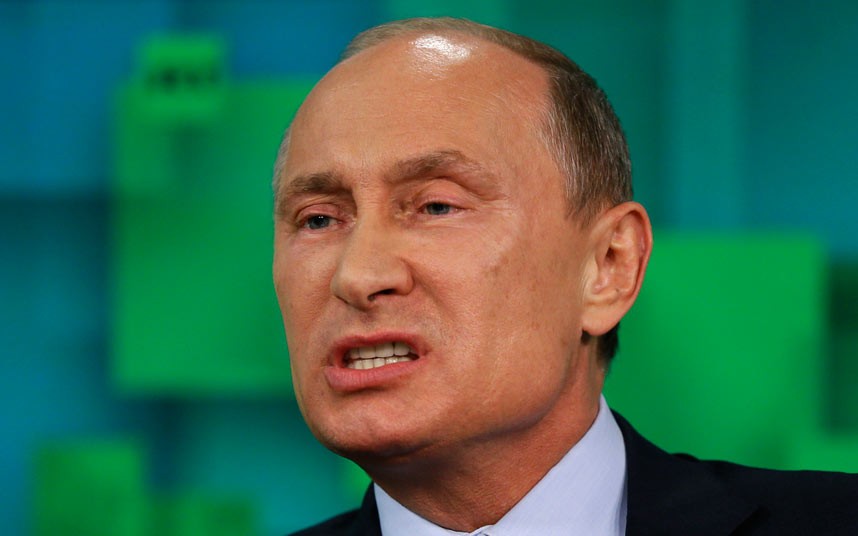Recent developments in Turkey and Russia have raised the strategic importance of the Republic of Bulgaria for the United States, NATO and the EU. This past summer, NATO staged major exercises in the county, involving more than 25,000 troops from 20 allied countries. Yet despite increased military cooperation in recent years, current political dynamics in the country threaten to undermine Bulgaria’s relationship with the military alliance and provide the Kremlin with a new foothold in the former Soviet satellite.
Economic and political challenges have set the table for the current political environment. Although the country has undergone both political and economic transformation since 1990, Bulgaria remains the poorest nation within the European Union. Its current GDP is only a meager $152 billion. The annual per capita income translates to an employed individual bringing home $456 per month, not even half of the average for the EU. Unemployment is almost 11 percent, well above the EU average, which is less than 10 percent.
In order to grow their economy, the country must address three major economic issues. The first is economic diversification — actively encouraging the emergence of mid-and small size enterprises. Second, Bulgaria will have to raise productivity significantly both in industry and agriculture. Finally, Bulgaria must solve demographic challenges that are similarly affecting a whole host of European nations.
On the political side, the new Republic of Bulgaria will have to establish stability and continuity. Bulgaria’s transition from a communist dictatorship to democracy means that expectations for, and demands of, more ethical, inclusive and transparent government have increased. Likewise, tolerance for the continuation of past transgressions has decreased. Moreover, these changes have signified the acceptance of individual freedoms and the appreciation of basic human dignity. In both respects, the Republic of Bulgaria is lagging behind the rest of the European Union. According to the latest opinion poll published by Brussels on life satisfaction, Bulgaria ranked at the bottom. Bulgarians averaged only 4.8 on a zero to 10 scale of happiness — a considerable distance from the second most unhappy — the Portuguese who managed to score 6.2.
The main reason for the Bulgarian people’s current flirtation with Russia can be found in their initial high expectations — in particular toward the United States of America and Western Europe. As these expectations have not yet been met, the overwhelming majority of the Bulgarians have lost trust in Western style democracy. To add psychological insult to existential injury, Bulgarians are also convinced that developments in their own country are not going in the right direction. Between 1990 and the present, Bulgarians have witnessed the appointment of no less than 15 different prime ministers. For this reason, Bulgarians must be forgiven to think that each election and each selection of a prime minister has led down a political dead-end street.
The current Prime Minister, Boyko Metodiev Borisov, first assumed office in July 2009 and is in his third term. He is the only politician in the history of modern Bulgaria to win four consecutive elections. While serving as the Mayor of Sofia, he founded a political party, aptly named “Citizens for European Development of Bulgaria,” known by its Bulgarian acronym GERB.
During his first term, his policies promoted the modernization of Bulgaria’s antiquated infrastructure and targeted corruption. His first government approved an ambitious development of the energy sector — including expanding research and development of renewable energy capacities. Moreover, through specialized police units, Borisov’s government aggressively pursued members of organized crime, and undertook to strengthen the rule of law. Finally, he streamlined the government by eliminating a good number of ministries and agencies.
Prime Minister Borisov’s second and third terms were plagued by opposition of the former “deep communist state” and Bulgarians’ nostalgia for a state that was expected to provide security from cradle to grave. Re-elected to a new four-year term in May of this year, Prime Minister Borisov has embarked on a host of reforms designed to bring his country closer to the more prosperous countries of the European Union. Three months after assuming his position, Prime Minister Borisov’s new government has published its program of governance for the next four years. The program mandates wholesale reforms in politics, the economy, the judiciary, the social sphere, defense, energy and tourism.
Prime Minister Borisov is Bulgaria’s most popular politician and is considered “the man of the people,” but he is not without his detractors. Rumen Radev, the newly elected socialist President of the country has insisted the Prime Minster made a strategic blunder by alienating Russia in recent years and is actively seeking to build closer ties with the Kremlin.
This is not the time for vacillation or to be slow to action. By embracing Bulgaria, its leadership, and its reforms, President Trump can promote American interests in region — which includes the Black Sea and the southern flank of NATO.
Although relations between the U.S. and Bulgaria were less than close in the 20th Century — when the Soviets dominated the region — the Republic of Bulgaria has supported NATO even before its official membership. Further neglect of the Republic of Bulgaria could lead to more political instability, economic stagnation, and a resulting disorder, anarchy, and even civil war. Therefore, President Trump and his administration should treat the Republic of Bulgaria as a priority in their foreign policy in order to counter Russian ambitions and Turkish duplicity in the Black Sea, the Mediterranean Sea and the greater Middle East.
